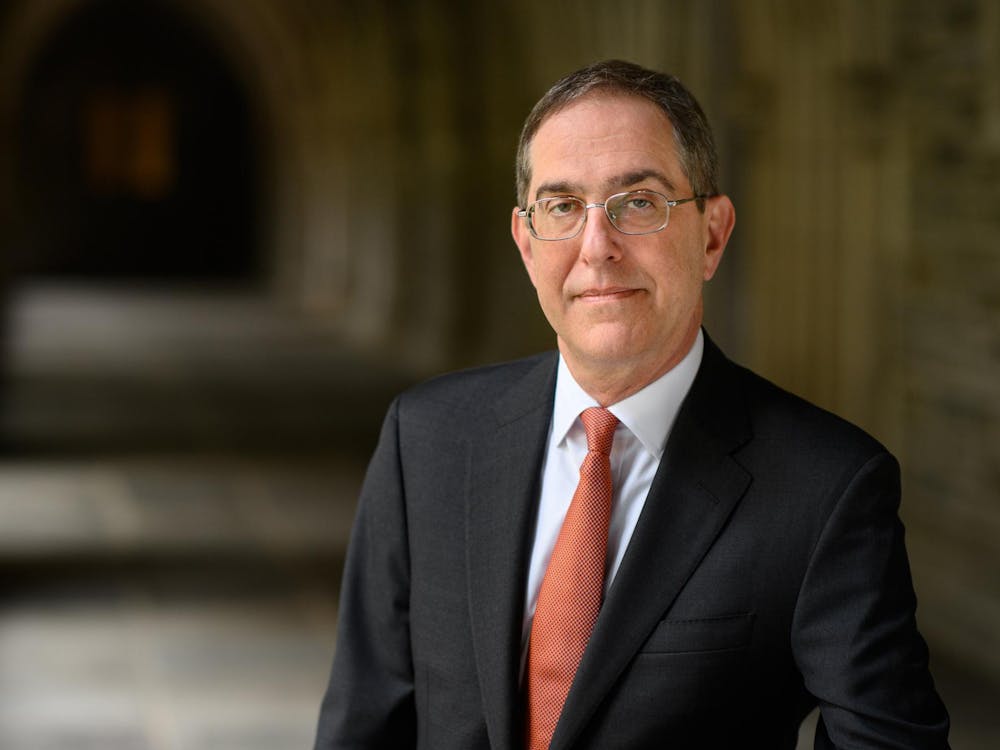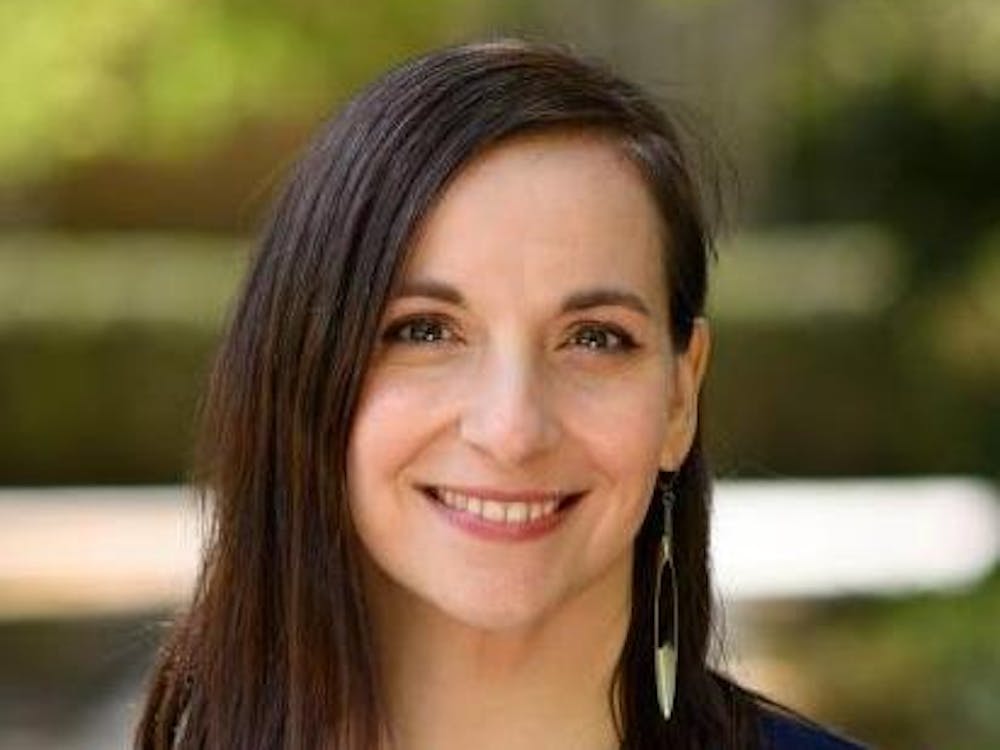Jeanne Lambrew served as former U.S. President Obama’s Deputy Assistant for Health Policy. Her political career began in 1993, when she served in the Clinton administration in the Health and Human Services Office of the Assistant Secretary for Planning and Evaluation. Then, in 1997 she served in the Clinton Administration on the White House National Economic Council. In 2000, she served the same administration in the Office of Management and Budget. From 2011 to January 2017, she served in the Obama administration, coordinating work towards the passage and implementation of the Affordable Care Act. Currently, Lambrew is a senior fellow at The Century Foundation and an adjunct professor at New York University.
The Daily Princetonian: Where did you go to school?
Jeanne Lambrew: I went to Amherst College for undergrad, and then got my masters and Ph.D. at the University of North Carolina, Chapel Hill.
DP: What did you study?
JL: As an undergraduate, I studied English, which at the time my family questioned why they were spending all that money on an undergraduate education for English. But, I will say, in my adult life, being able to be a good writer is so important across the board that it was a very valuable education. Then, when I went to graduate school, I studied public health, health policy, and health services research so that I could understand more about how our healthcare system works.
DP: What drove the shift in your interests from English to public health?
JL: When I was in college, I did a summer internship for the state of Maine, where I’m from, and worked with really dedicated people who at that point were trying to solve the problem that there were not enough health care professionals in rural Maine. So we worked on this report and it was so gratifying to take your skills and apply them to real world problems, of trying to connect people to health care. So, that internship was important. Plus, I have a whole bunch of health providers in my family, all of whom said ‘policy matters.’ So, between my personal experience in the internship and my family experience pointing to the value of doing public policy, I went and focused on this for my whole adult career.
DP: After you graduated, how did your career in health policy evolve?
JL: I was in graduate school finishing my dissertation when Bill Clinton became president, and he said, ‘I’m gonna reform the U.S. healthcare system,’ so I wanted to quit school to go work on that, but my faculty said no. One of my faculty who was working for Clinton said, ‘No, you can have a job the day after you get your Ph.D., but not a day before.’ So, I hurried up and got to D.C. in the fall of 1993, and was involved in Clinton’s failed attempt to do health reform at Health and Human Services, but when Clinton was reelected, I went to the White House. So I was in the Clinton White House for Clinton’s second term.
DP: You worked in the both the Clinton and Obama administrations. How would you say that the American view of health insurance and health policy evolved throughout your work in both administrations?
JL: By the time that I joined the Obama transition team and then the Obama administration in 2009, the American public was ready for health reform whereas it might not have been ready under the Clinton administration. After years of high health care cost growth, seeing the access gaps that were occurring because of the cracks in our healthcare system, and also seeing states successfully beginning to implement reforms. The nation in Washington was ready for that debate, whereas it wasn’t as ready for that back in the early ‘90s. Despite the economic meltdown in 2008-2009 and all the other priorities that were on the table, President Obama was committed to trying to create greater health equity for our nation. So, we had a Congress that was willing to do it, we worked very hard to get it across the finish line, but with his leadership and congressional allies committed to improving the health care system, after a long year of struggle, the Affordable Care Act was signed into law in March of 2010.
DP: What was your role in the Obama Administration, and more specifically, in working on the Affordable Care Act?

JL: So, it evolved. My first two years, I ran the Office of Health Reform at Health and Human Services, and in those first two years when we were trying to get the legislation passed, it was primarily working with congressional staff and the administration on that bill. How do we figure out what goes in? What shouldn’t go in? What does it mean? So, the first two years were entirely focused on the legislation because you need the legislation for the system to be improved. After that, at HHS, we changed the team to be an implementation team. So, we brought in experts on regulations, writing regulations, and figuring out how you get from a pile of paper, which is a law, to a real system that helps people. So that was the second phase of this, hardcore implementation. Then, I went to the White House from HHS in 2011, where I did similar work across the government, because we have parts of the law that were implemented at the Department of Treasury, the Department of Labor, and throughout the governments that did similar work at a higher level throughout the White House. And, at the White House we also did a fair amount of defense because the Affordable Care Act was challenged by day one. So, we worked on preparing for the Supreme Court cases that we won, we worked on preparing for congressional challenges that came about, there were 60 plus repeal votes while President Obama was there, and he vetoed all of them, or they didn’t get to his desk. But that was what we were doing while we were there, as well as the positive work such as implementing the significant number of programs in the ACA.
DP: How did you and your team go about maneuvering the “gridlock” in D.C. that you describe experiencing?
JL: It certainly was a challenge. The president's view was that no law is perfect, everything can be improved. So, we always had ideas to have our health care system better, but we didn’t have a receptive audience for the most part. All that said, it’s not well known that we probably had the president sign into law, two dozen different improvements to the law, over the years but they were just tucked into different bills because the Republicans didn’t want to be seen as improving Obamacare. But, when it comes right down to it, there’s often an interest on a bipartisan basis to fix problems and find the right moment and right set of actors. There’s always the opportunity to do that, it’s just a matter of doing the hard work and being ready to capitalize on those moments when they come.
DP: After Trump’s inauguration, what was the plan of action for maintaining and protecting the work that you had put into the Affordable Care Act?
JL: I personally went to a think tank, where I began work on the Monday after inauguration, because on the night of inauguration, the president signed an executive order about the Obamacare burden. So, the health care team immediately in all different places went to work. Some people went to think tanks, some people went on vacations, some people went to advocacy groups. But many people continued the dialogues and the friendships that were forged over those years to continue to try to put out information, analysis, support for organizations like the Congressional Budget Office that was doing all the work on what the implications of these bills would do, because I maintain a strong belief that facts matter and in this ACA debate they matter a lot. We were worried that they wouldn’t, but when people put out numbers that said a particular bill would cost 24 million people to become uninsured, it wasn’t questioned, it was believed. People would try to point out that there were other good things in the bill, but they didn’t try to deny those facts, and that made all of us feel good about this debate because facts mattered. We also had new allies that we never had in this debate before. Republican governors came to the defense of the Medicaid expansion in the law which we never really saw before. We saw citizen engagement in ways that were amazing. There were town hall meetings where people were showing up and talking about healthcare. And, not just doing it in an ill informed way, they were coming knowing the facts and talking to their representatives. We saw social media become a true platform for civic engagement on public policy.
DP: On this campus, a lot of students see advocacy as their avenue of enforcing change. How much would you say you saw advocacy influence the way that policy was made?
JL: It was enormous. To the point where other initiatives, and other policy areas, like people working on DACA, people working on tax cuts, have all been asking, what worked and didn’t work on healthcare. Because things like the town hall meetings, social media, Jimmy Kimmel using his nightly show for like three nights running talking about the bill and what it meant, and not just talking about the bill and what it meant but also saying, you know, I have the right to have an opinion, and to speak my opinion on my platform, I can be as smart as some of the professionals, because he was getting criticism for being just a comedian. ‘No, I am a father of a child with an illness and I can read a bill just as well as anyone else,’ [he said.] In fact, he was fact checked against Senator Bill Cassidy, and Jimmy Kimmel was right more often than Bill Cassidy was about the bill. And then he also said, here’s what to do, not just complain about it. And that’s something that’s new in this debate. Just being loud is not necessarily enough. It’s, here are the names of the senators that are on the fence, here’s their phone numbers, call, write letters, go to Washington if you can, be specific and concrete about what you’re asking for because you, as a citizen of the United States, have a right to do that. That was new, I think, in my 20 plus years of experience in Washington working on policy. It was powerful in ways that were amazing.








